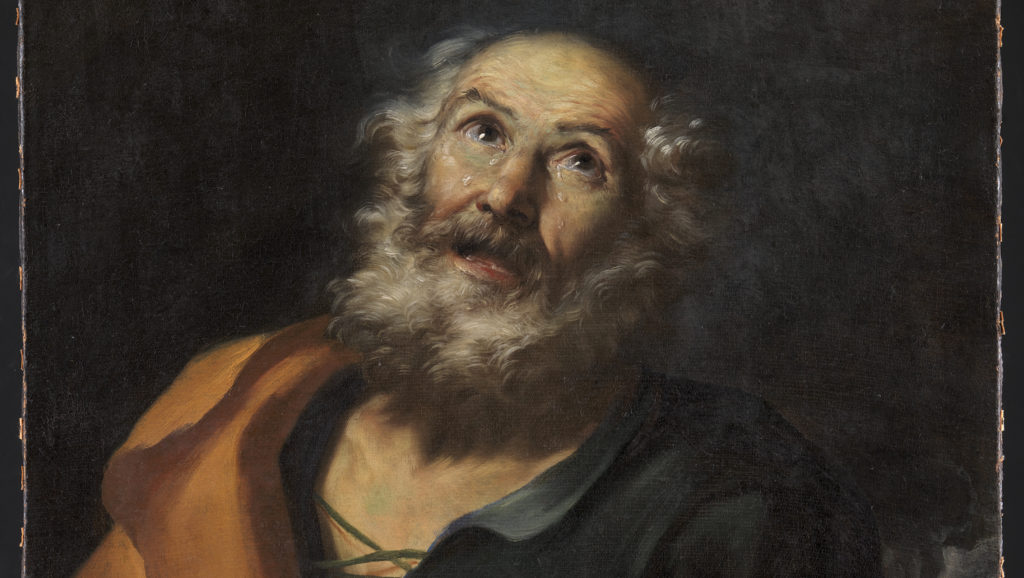There is a poignant scene in the series “The Chosen” which, irrespective of our reaction to it, demands reflection.
This is the scene: Just before curing Peter’s mother-in-law of a fever, Jesus has a private conversation with Peter’s wife. He begins by telling her that he knows how close they are to each other as husband and wife, and then expresses his sympathy to her for the fact that his call has effectively taken Peter out of their house. Then in a gentle tone he asks her how she feels about this. Her answer assures him that, while there is pain, she (like her husband) will willingly make the sacrifice.
Among other things, this sheds light on the fact that when one individual (like Peter) leaves all to follow Christ, he doesn’t pay the cost alone. Those close to him also pay a price. What did it cost the wives of apostles when Jesus called their husbands?
Moreover, this incident (albeit expressed fictionally here) sheds some needed light on how Jesus is not indifferent to the emotional crucifixions we sometimes undergo in order to respond to his call. It assures us that Jesus understands and gives us divine permission not to feel guilty about the pain we feel.
No doubt many will challenge the value of this scene from “The Chosen” since it is not historical (insofar as we know) but merely a fictional creation. Did the historical Jesus ever have this kind of a conversation with Peter’s wife or the wife of any of his apostles?
However, whether or not this scene is historical is not the point here. The point is that Jesus would not have been callous or indifferent to the pain of the wives and others whom the apostles left behind to follow him.
Mostly we avoid probing this question because we tend to take too literally some of Jesus’ sayings about leaving behind father, mother, wife, and children to follow him. For example, at one point Jesus says this: “If you come to me but will not leave your family, you cannot be my follower. You must love me more than your father, mother, wife, children, brothers, and sisters — even more than your own life!” (Luke 14:25–27).
Perhaps even colder and more callous in its literal expression, is this Gospel text: “He said to another man, ‘Follow me.’ The man replied, ‘Lord, first let me go and bury my father.’ But Jesus told him, ‘Let the dead bury their own dead. You, however, go and proclaim the kingdom of God.’ Still another said, ‘I will follow You, Lord; but first let me bid farewell to my family.’ Jesus replied, ‘No one who puts a hand to the plow and looks back is fit for service in the kingdom of God’ ” (Luke 9:60-62).
It is easy to misunderstand what Jesus is saying here about not looking back while following him. The images he employs are stark, cold, and emotionally brutal. But these are images, not literal spiritual counsels. The hard, brute emotional choices that one must sometimes make in fidelity to the Gospels might aptly be named as emotional crucifixion. In choosing Jesus we also choose the cross and there is real death, and the pain involved here cannot be softened or explained away.
However, and this is crucial to grasp, the choices we make to renounce ourselves and give ourselves over in genuine self-sacrifice are not made at the psychological or emotional level. Those choices are made at a deeper level, a moral level, where something deeper than our emotions and feelings rules and can for the sake of a deeper meaning and a deeper happiness, override the emotional and the psychological.
Thus, when Jesus says, “if you come to me but will not leave your family, you cannot be my follower,” he is addressing our deepest moral center, that place inside us where we ultimately choose right from wrong and meaning from emptiness. He is not addressing our emotions. He is not challenging us to an unhealthy emotional stoicism.
In challenging us to give up everything to become his disciple, Jesus is not dismissive of the emotional and psychological pain that this will cause us. When he invites us to take up his cross and follow him, he understands this will be an emotional crucifixion. But, in offering us the challenge, at the same time, he gives us permission to feel without guilt the brute affective pain of that choice on our emotions. He is not challenging us to a cold, inhuman stoicism, where for the love of God we are not supposed to feel the pain of losing precious relationships and precious freedoms.
Like the Jesus in “The Chosen,” compassionately checking with Peter’s wife as to where her emotions were vis-à-vis what Jesus is asking of them, Jesus is offering each of us the challenge of self-renunciation and at the same time checking with us how we are dealing emotionally with it.

